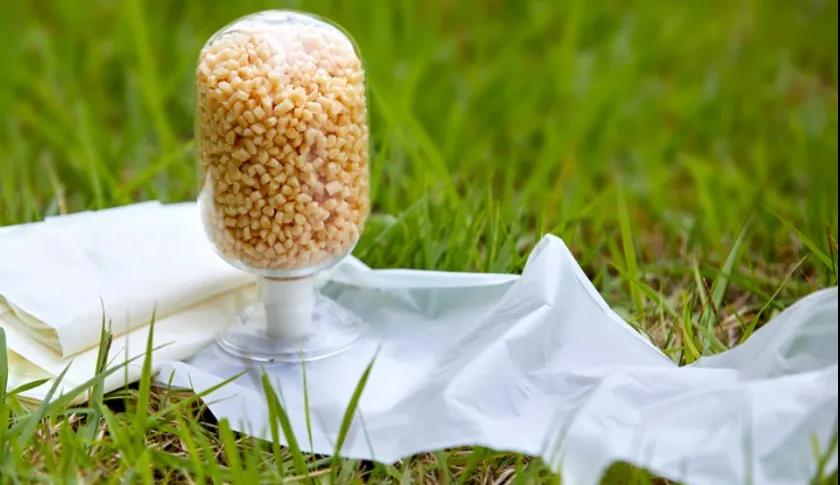On October 7, Korea Samyang Corporation announced that it has begun mass production of biodegradable plastic "PBIAT" at its Jeonju plant. The PBIAT produced by Samyang Company is mainly used for the production of disposable bags, and the scope of application will be expanded to agricultural mulch in the future.

PBIAT (Poly Butylene Isosorbide Adipate-co-Terephthalate) is an environmentally friendly plastic that uses isosorbide to improve the shortcomings of the existing petroleum-derived biodegradable plastic "PBAT".
Compared with PBAT, PBIAT has a lower carbon footprint and a faster natural decomposition rate in the soil. In addition, because it is stronger than PBAT, it can use fewer raw materials to produce thinner and tougher products than PBAT.
Samyang's strategy is to replace general biodegradable plastics including PBAT with the excellent performance and high eco-friendliness of PBIAT. To this end, Samyang is considering expanding the market to disposable biodegradable straws and tape adhesives, as well as film products as the main market.
Compared with traditional chemical materials, the use of PBIAT tape adhesives is expected to help reduce carbon emissions.
In addition, PBIAT can enter the EU market by meeting EU regulatory requirements for biodegradable plastics. In Europe, disposable plastic bags can only be used when the biomass content exceeds 50%. Samyang is currently able to produce PBIAT containing up to 50% biomass, and is constantly researching technologies to increase the biomass content. The relevant person in charge of Samyang Company said: "Based on the biomass material isosorbide, we plan to combine Samyang's organic synthesis technology and polymerization technology to continue to develop high-functional environmental protection materials that overcome the shortcomings of existing biodegradable plastics. It is planned to develop plastic that can be decomposed in the sea and use it in fishing nets."
Samyang has broken through the commercial production technology of isosorbide and built an isosorbide plant with an annual production capacity of approximately 10,000 tons on the premises of its subsidiary Samyang Innochem.
Currently, before the completion of the plant, various application technologies and products are being developed and are preparing for full commercialization. Started mass production of biodegradable plastic "PBIAT" based on biomass "isosorbide". Carbon neutral, stronger and stronger than petroleum-derived PBAT... Naturally decomposes faster.
In addition to the film type, the application range is expanded to disposable straws and tape adhesives.

The world's second commercial biodegradable plastic "PBIAT" made from isosorbide and the plastic film made from it

